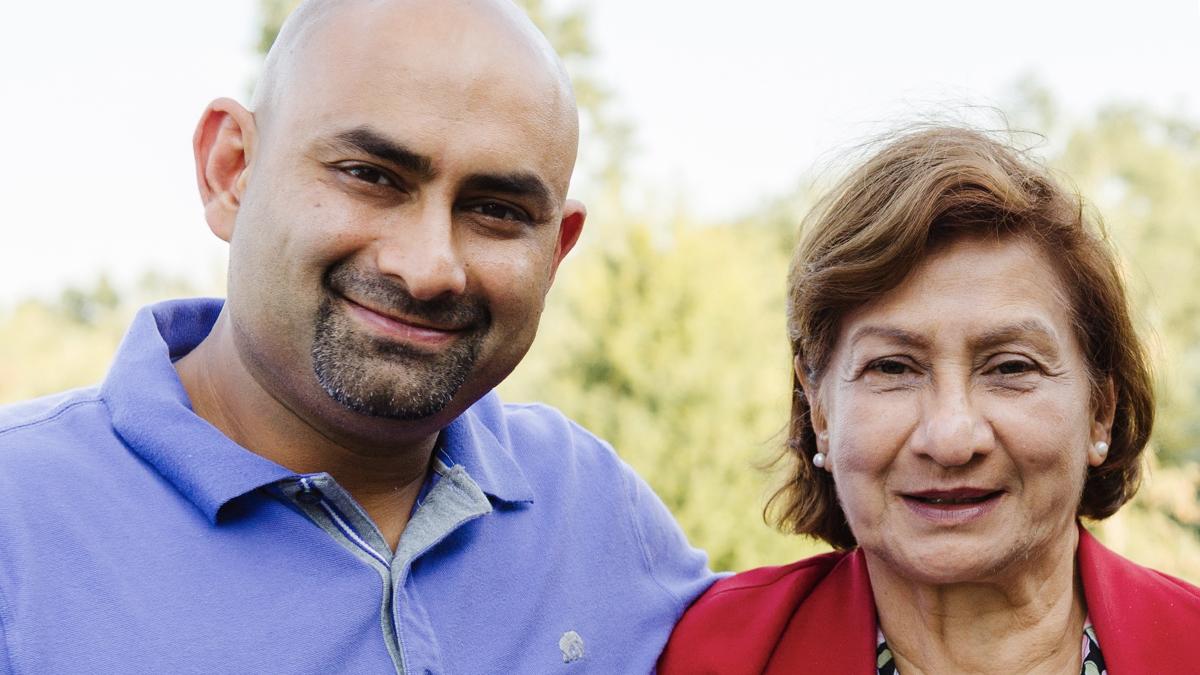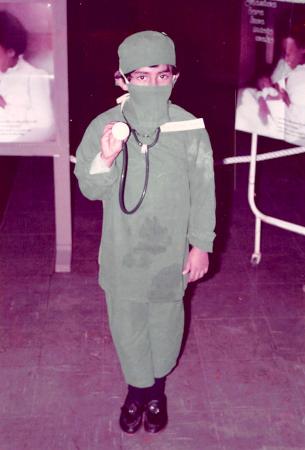Physician Researcher Brings Passion Home with Data Science Project

Akbar Waljee
Professor of Internal Medicine
Technology finally caught up with Akbar Waljee’s desire to conduct meaningful global health work in his native Kenya.
On the surface, professor of Internal Medicine Akbar Waljee’s latest collaboration is a puzzle. How does a US-trained gastroenterologist end up helping establish Eastern Africa’s first-ever data science hub with projects focused on mental and maternal health?
When you grow up in an environment full of poverty you realize the importance of trying to help folks.
The answer is a story 30-plus years in the making, spanning two continents and two professional disciplines—medicine and computing—that have only recently begun to intersect.
Born and raised in Nairobi by his mother (his father passed away when Waljee was very young), Waljee knew at an early age that he wanted to be a doctor.
“Being in healthcare was something I always knew I wanted to do. It had a lot to do with my Mom, who was very active in the Red Cross,” said Waljee. “I have a picture of me when I was probably 8 or 9 dressed as a surgeon. When you grow up in an environment full of poverty you realize the importance of trying to help folks.”
His other passion—computers—also revealed itself early. As a kid, he was featured in the community newspaper for completing a computer programming course offered through a vocational college. “A mere 12 years of age and already a computerman!” lauded the 1989 article. “Kenya may very soon have many more Master Akbar Waljees to take care of its new-technology needs.”
It was a prescient observation, as Waljee this year launched a partnership with colleagues at Aga Khan University’s Kenya campus on a project called UZIMA-DS, short for Utilizing health information for meaningful impact in East Africa through Data Science.

Funded by the National Institutes of Health, the initiative aims to harness cutting-edge computer technology to improve care in the local community. Waljee’s co-principle investigator, professor Amina Abubakar, directs AKU’s Institute for Human Development and has extensive research experience in maternal and mental health—subjects that will be the initial focus of the new data science hub.
The idea is to see how the newest artificial intelligence and machine learning tools might be applied for impact in comparatively low-resourced areas abroad.
While the project marks Waljee’s first major foray into the global health setting, his prior research work has been similarly focused on pushing the practical boundaries of computer technology to benefit underserved populations in the US—specifically veterans.
“Akbar has been involved in the earliest applications of machine learning in gastroenterology,” said Peter Higgins, professor of Internal Medicine. “He has been able leverage the big data in the Veterans Administration system to predict inflammatory bowel disease flares, calculate risk for hepatitis C patients, and predict responses to specific biologic therapies.”
Beginning in 2010, Higgins and Waljee collaborated to publish some of the earliest studies on the machine learning applications in gastroenterology, helping to bring their field into the precision medicine age. Making those technologies more widely available outside the US is a logical next step.
“Akbar has made a pivot to bring the strengths of AI and innovation to global health—particularly the people of East Africa, where he grew up,” Higgins said. “He wants to make an impact for patients beyond our high-tech, high-cost US environment and bring innovation to global healthcare.”
Waljee left Kenya for the US at 17 after finishing high school, joining an older sister in Atlanta. He attended medical school at Emory and completed his residency and fellowship programs at Michigan Medicine, joining the faculty in 2009. The new project with collaborators in his home country—where his mother still lives and he often visits—is the culmination of a long-held ambition.
“I’ve always been very interested in giving back to the community, particularly in East Africa, because that to me is home. I have a connection,” Waljee said. “I am so grateful to Dr. Abubakar and her AKU colleagues for allowing me to fulfill this ambition and be engaged on this project with them.”
Waljee also wishes to thank all of his colleagues and friends who have been instrumental in his work, specifically his long-time collaborator Dr. Ji Zhu, Susan A. Murphy Collegiate Professor of Statistics.
—Craig McCool
More about Akbar
Akbar Waljee is professor Internal Medicine at the University of Michigan Medical School. Waljee’s global work focuses on delivering high value care through data-science in low- and middle-income countries or low resource settings. His interests in global health equity align with the Center themes of addressing social and environmental determinants of health and providing technical solutions.
Waljee uses data science to address disparities in healthcare delivery and utilization. By using artificial intelligence methods—such as machine learning—he is able to tailor his work to facilitate the delivery of efficient, effective and equitable care, especially in areas with limited resources.